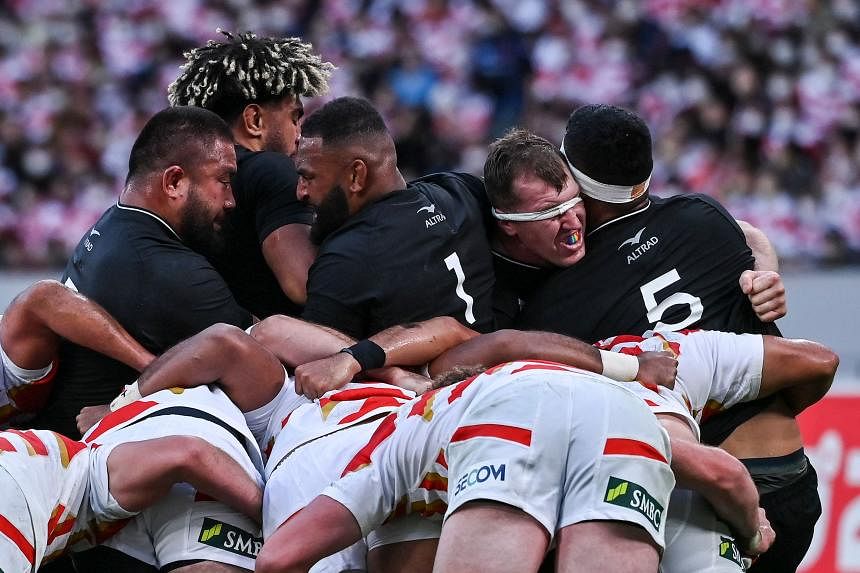WELLINGTON – New Zealand Rugby (NZR) will expand a trial for tackling below the chest to all community competition in 2023 as part of efforts to minimise the risk of concussion in the sport.
The trial will see the first tackler required to target the belly area below the sternum, with the second tackler still able to tackle below the shoulders in accordance with current rugby laws, NZR said in a statement on Tuesday.
Lower tackling was trialled in selected competitions in New Zealand in 2021.
“Our participants have told us that they want to see improvements made to the tackle and breakdown areas, so that’s been our focus,” NZR general manager for community rugby Steve Lancaster said.
“The resounding feedback we’ve received from this season’s trials is that the game is more enjoyable to play and safer when the tackle height is reduced to below the sternum, or what some people will know as the belly.
“We strongly believe that rugby offers so many benefits for our community participants that far outweigh the risk of injury. Our focus is on continuing to find ways to reduce that risk and make the game as safe as possible, while also preserving the social and individual benefits of the game.”
The trial comes amid growing concerns about head injuries in rugby.
A group of almost 200 former professional players have taken legal action against World Rugby, the Rugby Football Union and the Welsh Rugby Union. They argue that the sport’s governing bodies failed to take reasonable action to protect players from permanent brain injury and subsequent early-onset dementia caused by repetitive blows to the head.
In June, World Rugby extended its sit-out period for players with concussion symptoms, requiring them to avoid playing for a minimum of 12 days.
The global governing body also announced guidelines limiting full contact training to 15 minutes per week and launched a brain health education campaign for players.
NZR said it would continue to trial a scrum rule which bans teams from pushing a scrum more than 1.5 metres. The rule applies to senior club competition, but not the highest “Premier” grade of community rugby.
“Reducing the risk of injuries at scrums has long been a focus for the game,” added Lancaster.
“We know from this year’s trial that the ball spent less time in the scrum, which brings positives around ball-in-play time but we need more time to understand from a player safety perspective if we’ve got this quite right.” REUTERS

